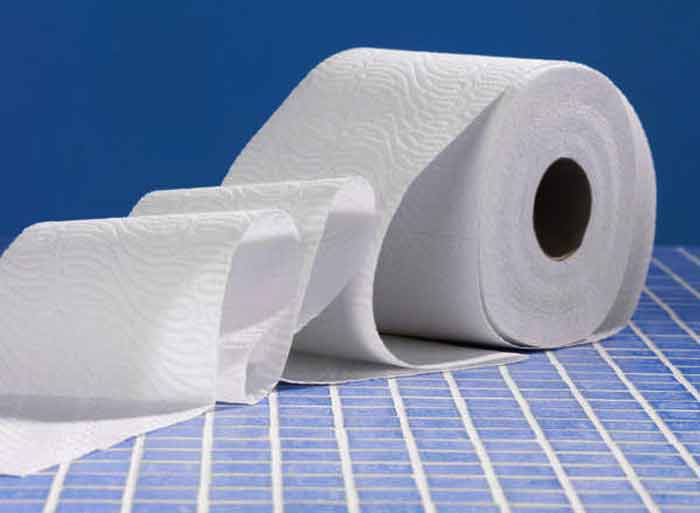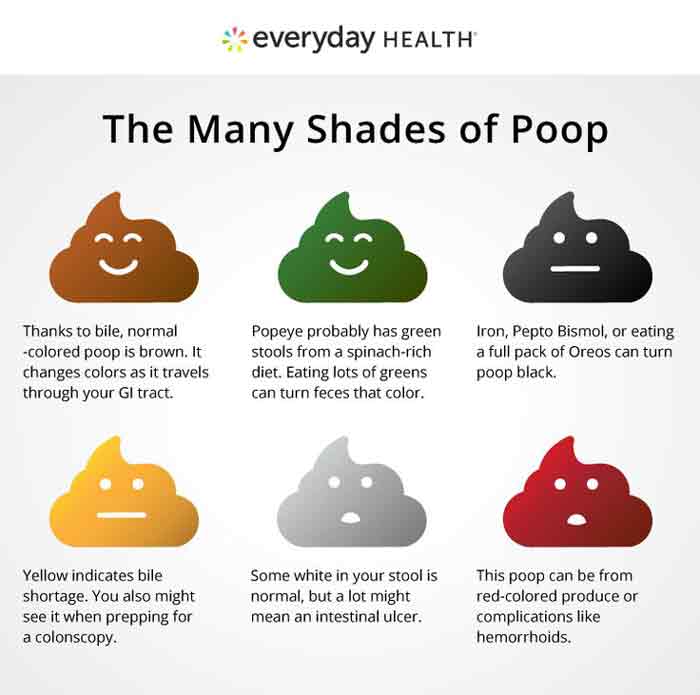Do Probiotics make you Poop a lot or Cause Loose & Colored Stool?
Do probiotics make you poop a lot, result to loose or colored stool? Speaking about poop may sound a bit weird. However, you are stuck with it and you do it at least every two days or every day. As uncomfortable as you may be reading this as much as reading it aloud to your pals, you need to know what happens to your poop when you take probiotics
Why Do Probiotics make you Poo a lot?
Many are times you take probiotics after having your broad spectrum antibiotics but how many times does your doctor inform you of the changes you expect on your stool?
Well, this material starts by informing you what you should check from your stool or poop each day whether you are on probiotics or not. Probiotics will however not result in many changes as far as the physiology of stool is concerned.
Density
Should your poop sink or float. It is known that poop should be able to sink in slowly in water. If it floats, then it means that you have had a high fat food and your gut has not produced enough bile salts to form micelles and therefore solubilize the fat.
Form
Your poop needs to be adequately bulk so that it can be pushed down the gut easily. This further prevents constipation.
Frequency
The major concern of this material. This is dependent on the amount of food ingested and the functional integrity of the gut. If you have a defect in the transit time of your gut as seen in IBS and other obstructive conditions, then you will have different pooping frequencies in a day.
The normal transit time should be about 24 hours. In terms of frequency, in a healthy individual, it may be either 3 in a day or a week. You might however find perfectly healthy individuals with an out of range frequency.
Color
the color of your stool should be not too far from the normal brown. This is however variable depending on the food ingested and condition you have. While you are on probiotics or any other drugs, this should be taken into account so as to keep to tabs with physiology and treat pathology.
Probiotics & Pooping a lot
Probiotics can make you poop a lot. The question of whether it can or not has been demystified in this material as follows:
Maintains adequate bowel movements
A study in the Journal of Nutrition, Health, and Aging 15(3):215-20 showed that its subjects, elderly, could reduce the use of laxative synthetics by taking probiotics. Laxatives are normally drugs that are indicated for constipation to increase the transit time of gut contents and therefore help expel poop. While probiotics have shown to act in the same manner by introducing beneficial bacteria, increased amount of poop can be explained by this mechanism the study postulated.
Treatment of IBS associated reduced transit
probiotics have been preferred for the treatment of IBS and therefore its accompanying reduced gut motility. It is the reduced gut motility that leads to reduced bowel movements in a day or week. Probiotics play a hand in the management of IBS by improving the transit time, reduction of segmental pooling and increasing bowel movements overall. Trusted sites such as the Dr. Oz, Mayo and WebMD support the pertinence of probiotics in improving bowel movements.
According to Barbara G, Stanghellini V, Brandi G, et al., 2005, there exist a relationship between commensal bacteria and gut sensorimotor function in health and disease[1]. This is also an explanation as to why you may get increased bowel movements when taking probiotics. This may either take place directly or indirectly on the motor functions via mediators released by the gut immune response, intestinal neuroendocrine factors or the end-products of bacterial fermentation (Quigley EM., 2011)[2].
There are strains that lead to stimulation of intestinal motility
These include Escherichia coli Nissle 1917 that stimulate the smooth muscle and lead to increased contractility on the colon. There are links between commensal bacteria and aboral propagation and initiation both of which are important steps in the peristaltic movements in the colon. Other strains that have shown reduced transit time include Bifidobacterium animalis and B. lactis as shown in a randomized controlled study by Marteau P, Cuillerier E, Meance S, et al., 2002[3].
Functional constipation
In patients with functional constipation, it has been shown that probiotics can actually accelerate transit in the intestines by decreasing the proliferation of methanogens in these patients. This is due to decreased production of methane by methane-producing bacteria.
Probiotics and loose stool-do probiotics cause loose Stool?
Probiotics can also lead to loose stool. Loose stool is what you refer to as diarrhea. It is characterised by watery content being excreted from the gut. All diarrheal episodes are loose stool but not all loose stool refers to diarrhea.
This is due to the fact that diarrhea is defined as having 4 – 6 episodes of loose stool in 24 hours. Probiotics have caused loose stool in many people. This therefore calls for information on how it does so yet it is supposed to treat diarrhea.
It is even indicated for the treatment of antibiotic-associated diarrhea as an alternative to other antibiotics indicated for the same such as vancomycin and rifamycin. The two are known for the treatment of pseudomembranous colitis which results in diarrhea just as probiotics. How paradoxical!
Fortunately, there are beliefs that diarrhea is caused by the expulsion of bacteria. This leads to temporary reactions such as constipation and diarrhea. This is attributed to by the process of remodeling and detoxifying that occurs when you start taking probiotics. When you are taking probiotics for the first time, this likely occurs.
Another reason as to why diarrhea may occur is that of an osmotic effect of some probiotics. The presence of osmotically active sugars in the probiotic brand may result in the movement of water across the intestinal membrane. This results in the flow of water downwards and as it passes through the rectum, it results in the liquefaction of stool or poop.
Probiotics stool color
- Do probiotics cause colored poop
- Can probiotics cause green poop? Why?
- Can probiotics cause yellow poop? Why?
Probiotics can lead to change in color of your poop. This may have different meaning and at times you may have an awkwardly colored stool and mistake it for probiotics causing it.
Green in stool when it is not the food you have eaten, may be indicative of a rapid transit time in the gut. The green color emanates from the bile produced in the duodenum in solubilization of the fat in food. When the transit time is too fast to have the micelles formed and the green vanish, then your poop may result in the green you have heard of.
Transit time is necessary for the change in color. If you were to harvest some gut contents in each segment, you will end up with contents of different color. Time is the necessary catalyst for the change of green to brown seen in normal poop.
At times it may be because you have had an overdose of probiotics and hence resultant small intestine bacterial overgrowth (SIBO). This is associated with inflammation to the lower intestines that disrupts the normal bowel movements. Inflammation leads to a defective peristalsis and gut contents move faster than usual. Green diarrhea may result therefore.
Yellow stool may also result when you are taking probiotics. This is indicative of transit time in the gut which is among others, dependent on gut microflora. When there is a too fast a transit time, then the fat content, especially after a fatty food, may give your poop the yellow color.
You can use the Bristol Stool Chart to identify abnormal stool. The illustrations on this chart allow you to read the descriptions while visualizing then categorize the abnormality in a scale of 1 to 7.
Taking Probiotics Properly to avoid pooping a lot, loose and Colored Stool
- Take the right amounts – at times changes in stool result from the consumption of an overdose.it is recommended that if you do not know how you should take your probiotic, you should ask your doctor or nutritionist. It is further recommended to start with a low dose then taper it up to the best tolerated doses daily.
- Have a low fat content food when taking probiotic – when you take the probiotic and realize that you have more frequent bowel movements, then take a low fat meal to avoid have steatorrhea (fatty stool). This is due to the inability of the gut to completely digest the fat in the segment in which it does so without enough time.
- Know yourself and talk to your doctor about it – if you have had a problem of gut motility, it is important that you inform your prescriber about this. This will enable choice of the best tolerable dose for you.
- Make a change in the brand or probiotic you take – if you think that the brand or probiotics strains in the product are responsible, then you could suggest to your doctor or nutritionist to have the brand changed.
Sources
[1] Barbara G, Stanghellini V, Brandi G, et al. Interactions between commensal bacteria and gut sensorimotor function in health and disease. Am J Gastroenterol. 2005;100:2560–2568. doi: 10.1111/j.1572-0241.2005.00230
[2] Quigley EM. Microflora modulation of motility. J Neurogastroenterol Motil. 2011;17:140–147. doi: 10.5056/jnm.2011.17.2.140.
[3] Marteau P, Cuillerier E, Meance S, et al. Bifidobacterium animalis strain DN-173 010 shortens the colonic transit time in healthy women: a double-blind, randomized, controlled study. Aliment Pharmacol Ther. 2002;16:587–593. doi: 10.1046/j.1365-2036.2002.01188



I started probiotics (Dannon-6 pack) two weeks ago. I started diarrhea 2
day later, so I stopped probiotics. The diarrhea did not. I have had diarrhea for 15 days. There is nothing on the ‘net for how to stop the diarrhea. Feb. 10, 2018 706 829 1729 Yes, I phoned Dannon. They were of no help.
Charles. Has it stopped now?